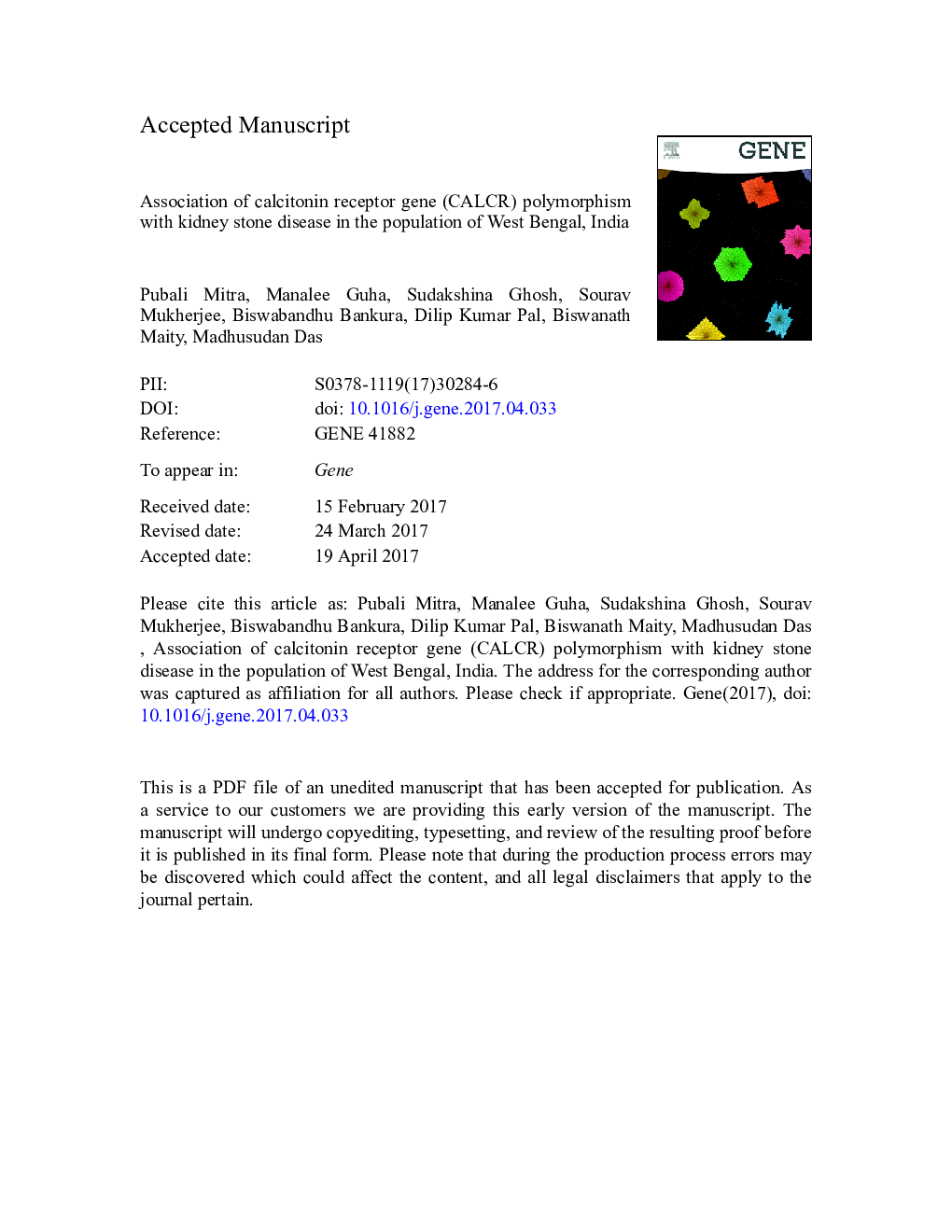| Article ID | Journal | Published Year | Pages | File Type |
|---|---|---|---|---|
| 5589224 | Gene | 2017 | 27 Pages |
Abstract
Kidney Stone Disease (KSD) is a complex urologic disorder with strong genetic constituent. Earlier association studies have indicated that the genetic polymorphisms are the potential cause of stone materialization; however unfortunately, the actual genetic signature is still unknown. Therefore, present study was aimed to investigate the potential contribution of two important polymorphisms of calcitonin receptor gene (CALCR): (i) rs1801197 (Leu447Pro) and (ii) rs1042138 (3â²UTR + 18C > T) in renal stone formation. Accordingly, we enrolled 152 patients registered with calcium-rich stone in kidney (case) and 144 corresponding age, sex and ethnicity matched healthy individuals (controls). Epidemiological and clinical data were recorded as well as peripheral blood sample was collected from each individual. Serum creatinine and urinary calcium level was found high in patients, compared to controls. Out of two studied polymorphisms, we have not found any significant association against the rs1042138 with KSD, nonetheless, significant high frequency (p = 0.001; Odds ratio = 1.81; 95% CI: 1.28-2.55) of risk allele T against the rs1801197 (T > C) in patient was noted. Moreover, significant association with KSD was noted by genotypic analysis of rs1801197 (Leu447Pro) in our population. Interestingly, male patients carrying TT genotype was found to be at high risk of stone formation, while no such association was observed in female patients. Altogether, present study indicated that the rs1042138 might not be used as a useful marker for susceptibility of kidney stone formation, whereas, the rs1801197 could definitely be considered as one of the risk factors for KSD in Indian population at least in West Bengal in particular.
Keywords
Related Topics
Life Sciences
Biochemistry, Genetics and Molecular Biology
Genetics
Authors
Pubali Mitra, Manalee Guha, Sudakshina Ghosh, Sourav Mukherjee, Biswabandhu Bankura, Dilip Kumar Pal, Biswanath Maity, Madhusudan Das,
